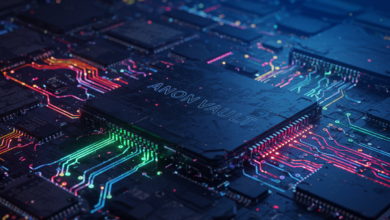rajkotupdates.news : elon musk in 2022 neuralink start to implantation of brain chips in humans

Welcome to rajkotupdates.news, where we bring you the latest updates on technology and innovation. Are you ready for a groundbreaking development? Brace yourselves because Elon Musk’s Neuralink is set to start implanting brain chips in humans by 2022! That’s right, we’re talking about real-life cyborgs with enhanced cognitive abilities. In this blog post, we will delve into the exciting world of brain-machine interfaces and explore how they may revolutionize our lives. So sit back, relax, and let’s dive into this futuristic journey together!
Elon Musk in 2022: Neuralink Start to Implantation of Brain Chips in Humans
In 2022, Elon Musk is expected to announce that Neuralink has begun the implantation of brain chips in humans. This would make it possible for people to have direct communication with computers and other artificial intelligences.
This technology has the potential to improve our lives in many ways, but there are also concerns about its potential misuse. There are also a number of unanswered questions about how this technology will be regulated and who will have access to it.
What is Neuralink?
Neuralink is a company founded by entrepreneur and business magnate, Elon Musk. The company’s goal is to create “neural lace” – a technology that will allow humans to interface with computers directly, bypassing traditional input methods such as keyboards and mouse. Neuralink plans to do this through the use of brain chips.
How Neuralink will implant brain chips into humans
1. Neuralink, founded by Tesla CEO and SpaceX founder Elon Musk, is currently working on a project to implant brain chips into humans. The goal of the project is to improve communication between people and machines.
2. So far, Neuralink has conducted successful implants into rats and mice. The next step will be to test the chips in humans. If all goes well, human trials could start as early as 2020.
3. Although the technology for implanting brain chips into humans is still in its early stages, there are many potential benefits of this technology. For example, it could help people with disabilities communicate more effectively with machines. It could also allow patients with severe brain injuries to regain some level of independence.
4. There are some concerns, however, regarding the long-term effects of implanting brain chips into humans. It’s not yet clear how the chip will interact with the human brain, and there is no guarantee that the technology will be safe over time. Nonetheless, Neuralink is determined to continue exploring this promising new technology
Why is this a big deal?
1. Elon Musk is working on a project that could revolutionize the way we think about brain implants. His company, Neuralink, is working on implanting tiny chips into people’s brains in order to improve their cognitive abilities.
2. There are some big challenges to this technology, but if it works as promised, it could be a major step forward for humanity.
3. It’s still early days for Neuralink and there’s a lot of work to be done before these implants become a reality, but it’s an exciting prospect nonetheless.
How does this relate to Elon Musk?
Elon Musk, the founder of Tesla and SpaceX, is working on a project called Neuralink. Neuralink is a company that is looking to develop brain-computer interfaces. This would allow people to directly connect their brains with computers. This could be used for a number of purposes, such as allowing people to control robots or even create digital versions of themselves.
This project is incredibly ambitious, and it remains to be seen whether or not it will ultimately be successful. However, if it does prove to be successful, it could have huge implications for both society and technology.
Conclusion
Elon Musk’s Neuralink has been a hot topic ever since it was announced. The company is planning to implant chips into humans in order to help with communication, artificial intelligence and other such tasks. This raises many ethical questions that need to be answered, not the least of which is who will be allowed access to these chips and under what circumstances?



